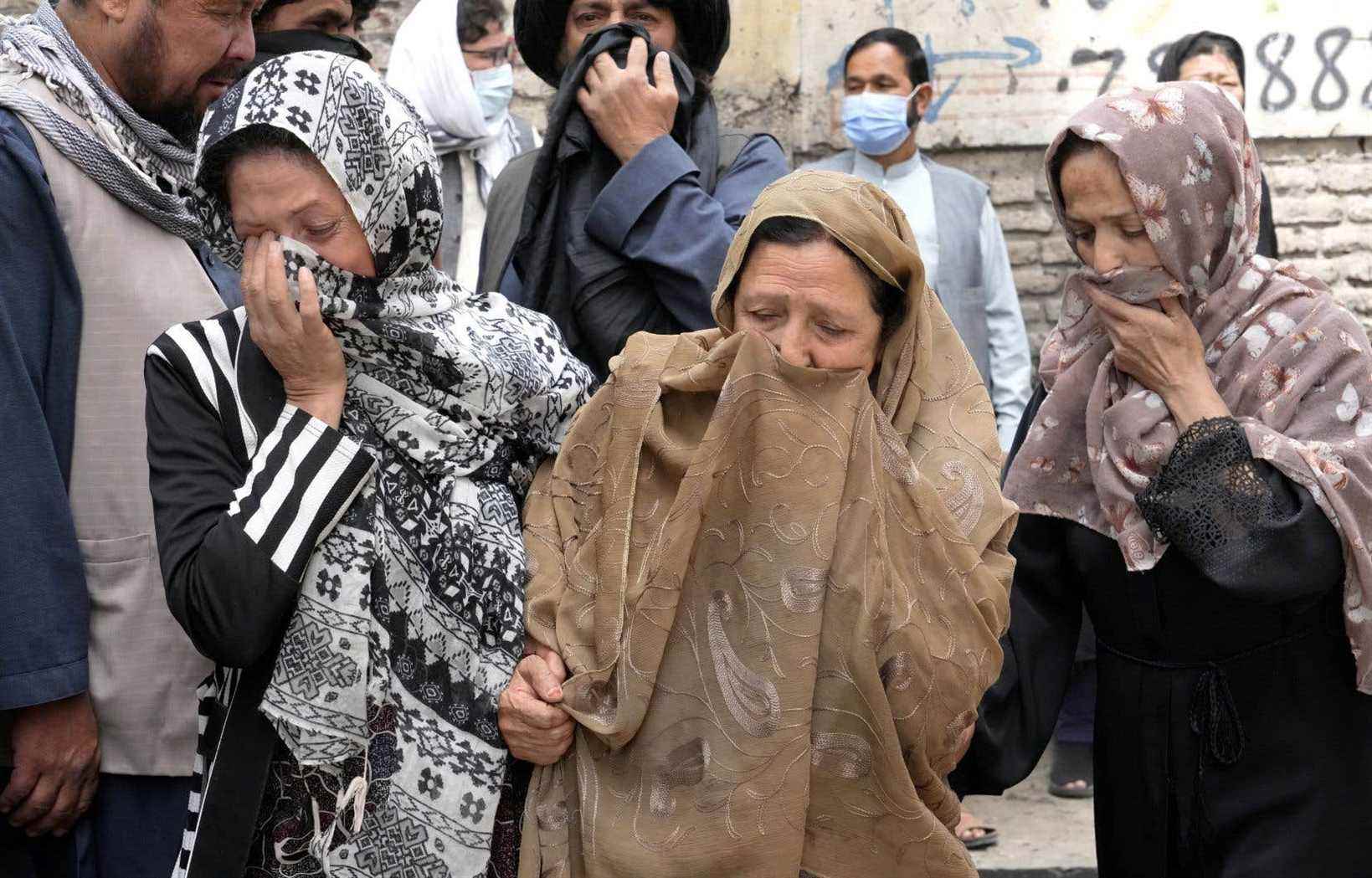At least 6 people were killed and 24 injured in two explosions that hit a boys’ school on Tuesday in a district of Kabul largely populated by members of the Shiite Hazara minority and already targeted several times in the past.
Two homemade bombs exploded outside the Abdul Rahim Shahid school in the capital’s western district of Dasht-e-Barchi, killing six according to a “preliminary toll”, the report said. AFP Kabul police spokesman Khalid Zadran.
Two hospitals in Kabul reported receiving 24 injured.
Horrifying images circulating on social media showed several bodies lying on the ground at the entrance to the compound, amid pools of blood, charred books and scattered school bags.
“We had just left the school and went out the back door when the explosion took place,” Ali Jan, a student injured by the first explosion, told AFP in a hospital in Dasht-e-Barchi. .
The second explosion occurred as first responders arrived to help the victims.
“When I heard the explosion, I called a friend of mine who studies at this school,” said Murtaza, a trader injured in the second explosion. “His phone was off. So I went to the scene […], and that’s when I was hit. »
Dasht-e-Barchi is home to many members of the Hazara minority, marginalized for centuries and regularly persecuted in this predominantly Sunni country. The neighborhood has often been targeted in the past by the Islamic State (IS) group.
Saeed Rahmatullah Haidari, a student, described “terrifying” scenes. “Some of our friends had lost their hands, others were covered in blood. »
Outside Dasht-e-Barchi hospital, Taliban soldiers brutally repelled relatives of victims gathered there, an AFP journalist noted.
A woman fainted after learning her son had been injured. An elderly lady was in tears waiting to hear the fate of a loved one.
Accusations of heresy
A third explosion was heard in an English-language training center in the same district, added Mr. Zadran, explaining that it was a grenade, which injured one person.
UN Secretary General António Guterres reacted by stressing that attacks against civilians are “strictly prohibited by international humanitarian law”.
The EU’s special envoy to Afghanistan, Tomas Niklasson, said the perpetrators of these “heinous” attacks should be held accountable.
And the NGO Amnesty International condemned “reprehensible attacks”. “It also shows that the Taliban […] do not protect civilians, especially those belonging to minority ethnic and religious groups,” said Samira Hamidi, the NGO’s South Asia campaign manager.
Security has improved in Afghanistan since the Taliban took power in August and the withdrawal of American troops, after 20 years of attrition against their military presence.
Attacks, mainly claimed by the Islamic State-Khorasan (EI-K) group, the regional branch of the IS group, still occur regularly.
Dasht-e-Barchi has been hit in recent years and since the return to power of the Taliban by several attacks claimed by EI-K, which considers the Hazaras to be heretics.
In May 2021, a series of explosions occurred in front of a school for girls in this district, killing 85 people, mostly high school girls, and injuring more than 300.
The Taliban are trying to downplay the threat of I-K and are waging a ruthless fight against the group, which they have been fighting for years. They multiplied raids, particularly in the eastern province of Nangharar, and arrested hundreds of men accused of being part of it.
They now claim to have defeated EI-K, but analysts believe that the extremist group is still the main security challenge for the new Afghan power.
